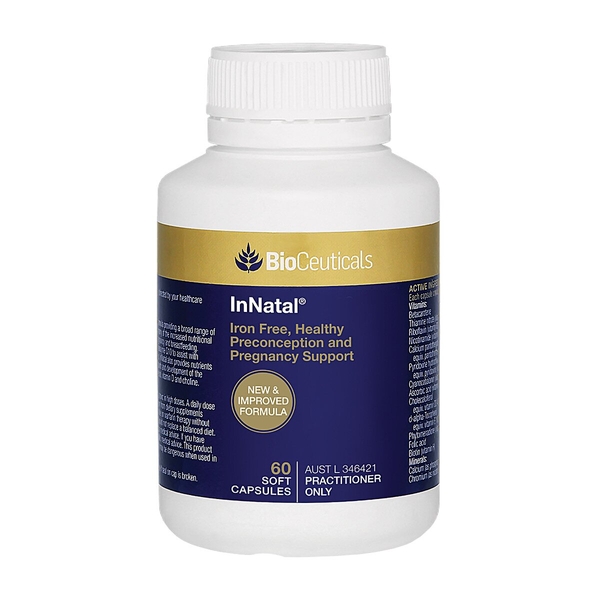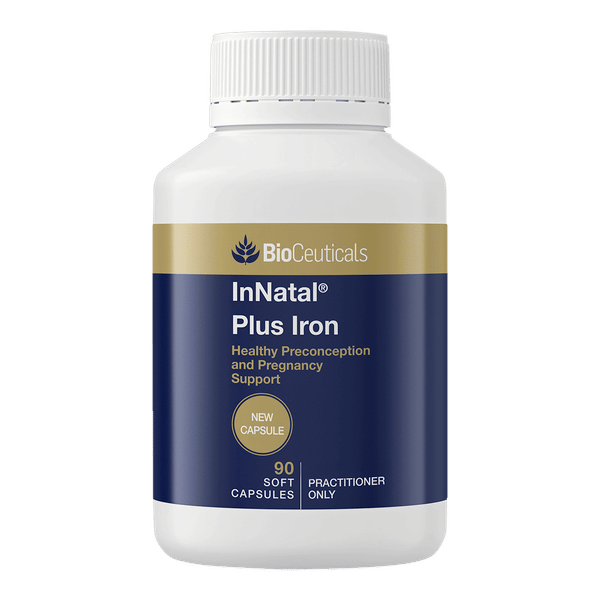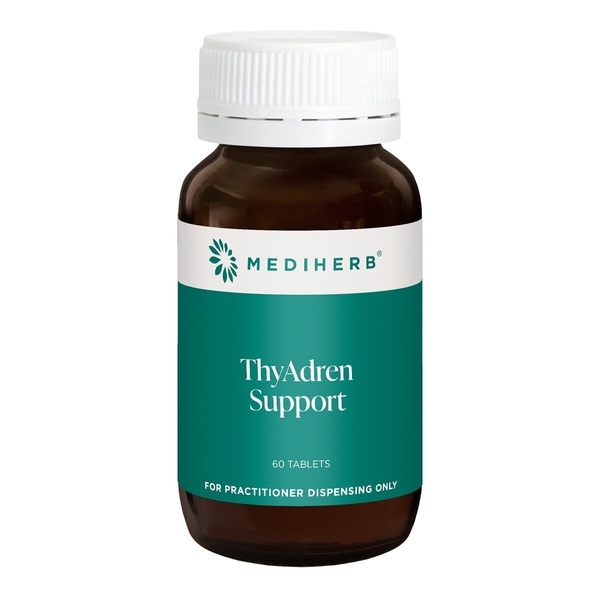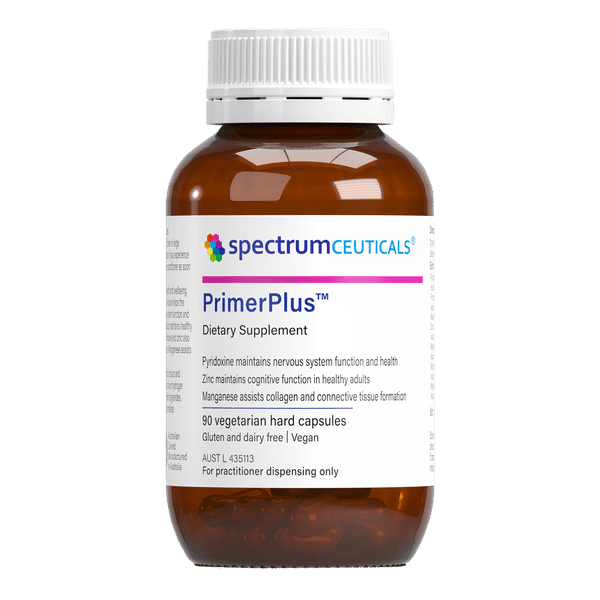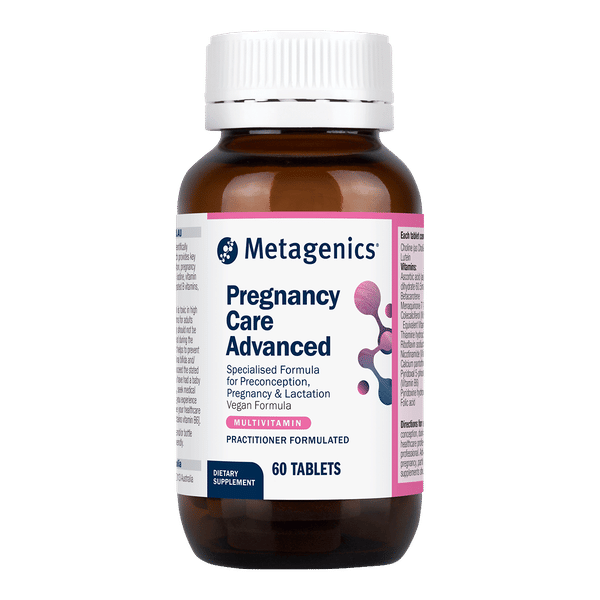
Background
Vitamin B6 is needed for the proper function of sugars, fats, and proteins in the body. It's also necessary for the development of the brain, nerves, skin, and many other parts of the body. It's found in cereals, legumes, and eggs, and often used with other B vitamins in vitamin B complex products.
People commonly use vitamin B6 for preventing and treating vitamin B6 deficiency. It is also used for heart disease, premenstrual syndrome (PMS), depression, morning sickness, Alzheimer disease, menstrual cramps, diabetes, and many other conditions, but there is no good scientific evidence to support many of these other uses.
Safety Safety definitions
Special Precautions & Warnings:
Pregnancy: Vitamin B6 is likely safe when taken by mouth, appropriately. It's sometimes used to control morning sickness, but should only be done so under the supervision of a healthcare provider. Taking high doses is possibly unsafe. High doses might cause newborns to have seizures.Breast-feeding: Vitamin B6 is likely safe when taken appropriately. The recommended amount during breast-feeding is 2 mg by mouth daily. Avoid using high amounts. There isn't enough reliable information to know if taking high doses of vitamin B6 is safe when breast-feeding.
Post-surgical stent placement. Avoid using a combination of vitamin B6, folate, and vitamin B12 after receiving a coronary stent. This combination may increase the risk of blood vessel narrowing.
Weight loss surgery. Taking a vitamin B6 supplement is not needed for people that have had weight loss surgery. Taking too much might increase the chance of side effects such as nausea, vomiting, and browning skin.
Effectiveness
- A rare seizure disorder that requires vitamin B6. Giving infants vitamin B6 by IV controls seizures caused by a condition called pyridoxine-dependent epilepsy. IV products can only be given by a healthcare provider.
- A condition in which the body makes abnormal red blood cells that build up iron (sideroblastic anemia). Taking vitamin B6 by mouth is effective for treating an inherited type of anemia called sideroblastic anemia.
- Vitamin B6 deficiency. Taking vitamin B6 by mouth is effective for preventing and treating vitamin B6 deficiency.
- High levels of homocysteine in the blood (hyperhomocysteinemia). Taking vitamin B6 by mouth, usually with folic acid, is effective for treating high homocysteine levels in the blood.
- High levels of a hormone called prolactin (hyperprolactinemia) caused by antipsychotic drugs. Taking vitamin B6 by mouth reduces levels of prolactin in males with this condition.
- Kidney stones. Taking vitamin B6 by mouth, alone or along with magnesium, can decrease the risk of kidney stones, especially in people with an inherited condition that causes kidney stones.
- Morning sickness. Taking vitamin B6 by mouth improves symptoms of mild to moderate nausea and vomiting during pregnancy. Vitamin B6 plus the drug doxylamine is recommended for those who don't get better when taking vitamin B6 alone.
- Premenstrual syndrome (PMS). Taking vitamin B6 (pyridoxine) by mouth seems to improve PMS symptoms including breast pain. The lowest effective dose should be used. Higher doses will increase the chance of side effects and aren't likely to increase benefits.
- Decline in memory and thinking skills that occurs normally with age. Taking vitamin B6 by mouth doesn't improve mental function in elderly people.
- Alzheimer disease. Taking vitamin B6 supplements by mouth or eating large amounts of vitamin B6 in the diet doesn't seem to reduce the risk for Alzheimer disease.
- Carpal tunnel syndrome. Taking vitamin B6 by mouth doesn't seem to reduce symptoms of carpal tunnel syndrome.
- Cataracts. Taking vitamin B6 by mouth, together with folic acid and vitamin B12, doesn't prevent cataracts. It might even increase the risk of needing to have cataracts removed.
- An adverse skin reaction caused by cancer drug treatment (chemotherapy-induced acral erythema). Taking vitamin B6 by mouth doesn't seem to prevent this skin reaction in people treated with cancer drugs. Vitamin B6 might also reduce how well certain cancer drugs work.
- Non-cancerous growths in the large intestine and rectum (colorectal adenoma). Taking a combination of folic acid, vitamin B6, and vitamin B12 by mouth doesn't reduce the risk of developing colorectal polyps.
- Seizures in people with high blood pressure during pregnancy (eclampsia). Taking vitamin B6 by mouth or as a shot doesn't seem to reduce the risk of seizures during pregnancy. Vitamin B6 shots can only be given by a healthcare provider.
- Weak and brittle bones (osteoporosis). Taking a combination of folic acid, vitamin B6, and vitamin B12 by mouth doesn't prevent broken bones in people with osteoporosis.
- A pregnancy complication marked by high blood pressure and protein in the urine (pre-eclampsia). Taking vitamin B6 by mouth or as a shot doesn't seem to reduce the risk of pre-eclampsia. Vitamin B6 shots can only be given by a healthcare provider.
- Preterm birth. Taking vitamin B6 by mouth or as a shot doesn't seem to reduce the risk of preterm birth. Vitamin B6 shots can only be given by a healthcare provider.
Dosing & administration
In supplements, vitamin B6 is often used alone and in products containing other B vitamins. Speak with a healthcare provider to find out what type of product and dose might be best for a specific condition.
Interactions with pharmaceuticals
Amiodarone (Cordarone)
Interaction Rating=Moderate Be cautious with this combination.
Amiodarone might increase sensitivity to sunlight. Taking vitamin B6 along with amiodarone might increase the chances of sunburn, blistering, or rashes on areas of skin exposed to sunlight. Be sure to wear sunblock and protective clothing when spending time in the sun.
Levodopa
Interaction Rating=Minor Be watchful with this combination.
Vitamin B6 can increase how quickly the body breaks down and gets rid of levodopa. But this is only a problem if you are taking levodopa alone. Most people take levodopa along with carbidopa. Carbidopa prevents this interaction from occurring. If you are taking levodopa without carbidopa, do not take vitamin B6.
Medications for high blood pressure (antihypertensive drugs)
Interaction Rating=Moderate Be cautious with this combination.
Vitamin B6 might lower blood pressure. Taking high doses of vitamin B6 along with medications that lower blood pressure might cause blood pressure to go too low. Monitor your blood pressure closely.
Phenobarbital (Luminal)
Interaction Rating=Moderate Be cautious with this combination.
Vitamin B6 might increase how quickly the body breaks down phenobarbital. This could decrease the effects of phenobarbital.
Phenytoin (Dilantin)
Interaction Rating=Major Do not take this combination.
Vitamin B6 might increase how quickly the body breaks down phenytoin. Taking vitamin B6 along with phenytoin might decrease the effects of phenytoin and increase the risk of seizures. Do not take large doses of vitamin B6 if you are taking phenytoin.
Interactions with herbs & supplements
Interactions with foods
Products
View all products- Pyridoxine hydrochloride (Vitamin B6) 18.3 mg equiv. pyridoxine 15 mg
- Pyridoxal 5-phosphate (P5P) 11 mg equiv. pyridoxine 7.49 mg
- Taurine 3 g
- Total Magnesium 350 mg
- Magnesium orotate 485 mg equiv. magnesium 32 mg
- Magnesium glycinate dihydrate 1.71 g equiv. magnesium 200 mg
- Magnesium citrate 463 mg equiv. magnesium 75.1 mg
- Magnesium ascorbate monohydrate 694 mg equiv. magnesium 43.1 mg
- Zinc citrate dihydrate 48.1 mg equiv. zinc 15.1 mg
- Thiamine hydrochloride (Vitamin B1) 20 mg equiv. thiamine 17.9 mg
- Riboflavin 5-phosphate sodium (Activated B2) 10 mg equiv. riboflavin 7.68 mg
- Nicotinamide (Vitamin B3) 10 mg
- Calcium pantothenate (Vitamin B5) 164 mg equiv. pantothenic acid 150 mg equiv. calcium 13.9 mg
- Hydroxocobalamin (Vitamin B12) 100 μg
- Calcium folinate (Activated folate) 108 μg equiv. folinic acid 100 μg
- Ascorbic acid (Vitamin C) 623 mg
- Glutamine 500 mg
- Levomefolate calcium (Activated folate) 434 μg equiv. levomefolic acid 400 μg
- Mecobalamin (Vitamin B12) 400 μg
- Total Pyridoxine 25 mg
- Pyridoxine hydrochloride (Vitamin B6) 9.1 mg equiv. pyridoxine 7.5 mg
- Pyridoxal 5-phosphate monohydrate (P5P) 11.8 mg equiv. pyridoxine 7.5 mg
- Calcium folinate (Activated folate) 109 μg equiv. folinic acid 100 μg
- Folic acid 400 μg
- Selenomethionine 186 μg equiv. selenium 75 μg
- Zinc citrate dihydrate 62.3 mg equiv. zinc 20 mg
- Potassium iodide 353 μg equiv. iodine 270 μg
- Beta-carotene carotenoids (Vitamin A) 6 mg
- Thiamine hydrochloride (Vitamin B1) 38.1 mg equiv. thiamine 30 mg
- Calcium pantothenate (Vitamin B5) 43.67 mg equiv. pantothenic acid 40 mg
- Biotin 300 μg
- Cholecalciferol 12.5 μg equiv. vitamin D3 500 IU
- Choline bitartrate 100 mg equiv. choline 41.13 mg
- Inositol 40 mg
- Chromium picolinate 201 μg equiv. chromium 25 μg
- Chromium chloride hexahydrate 384 μg equiv. chromium 75 μg
- Copper gluconate 714 μg equiv. copper 100 μg
- Molybdenum trioxide 75 μg equiv. molybdenum 50 μg
- Manganese amino acid chelate 10 mg equiv. manganese 1 mg
- Phytomenadione (Vitamin K1) 80 μg
- Mentha x piperita oil 1 mg
- Riboflavin sodium phosphate (Vitamin B2) 20.8 mg equiv. riboflavin 15.2 mg
- Nicotinamide (Vitamin B3) 18 mg
- Mecobalamin (Vitamin B12) 500 μg
- Iron bisglycinate 36.5 mg equiv. iron 10 mg
- Menaquinone 7 (Vitamin K2) 20 μg
- Calcium ascorbate dihydrate 91.3 mg equiv. calcium equiv. ascorbic acid (vit C) 75 mg
- Magnesium ascorbate monohydrate 84.1 mg equiv. magnesium equiv. ascorbic acid (vit C) 75 mg
- Total Pyridoxine 15.1 mg
- Retinyl acetate (Vitamin A) 177.1 μg equiv. vitamin A 500 IU equiv. retinol equivalents 150 μg RE
- Cyanocobalamin (Vitamin B12) 200 μg
- Ascorbic acid (Vitamin C) 100 mg
- Cholecalciferol 6.25 μg equiv. vitamin D3 250 IU
- d-alpha-Tocopheryl acid succinate 41.3 mg equiv. vitamin E 50 IU
- Zinc citrate dihydrate 23.36 mg equiv. zinc 7.5 mg
- Thiamine hydrochloride (Vitamin B1) 41.24 mg equiv. thiamine 32.45 mg
- Riboflavin (Vitamin B2) 15 mg
- Nicotinamide (Vitamin B3) 107.5 mg
- Nicotinic acid (Vitamin B3) 2.5 mg
- Calcium pantothenate (Vitamin B5) 75 mg equiv. pantothenic acid 68.71 mg
- Folic acid 95 μg
- Calcium folinate (Activated folate) 114 μg equiv. folinic acid 105 μg
- Biotin 50 μg
- Choline bitartrate 25 mg
- Inositol 12.5 mg
- Selenomethionine 62 μg equiv. selenium 25 μg
- Potassium citrate 12.44 mg equiv. potassium 4.5 mg
- Magnesium amino acid chelate 50 mg equiv. magnesium 10 mg
- Manganese amino acid chelate 5 mg equiv. manganese 500 μg
- Chromium picolinate 200 μg equiv. chromium 25 μg
- Copper gluconate 360 μg equiv. copper 50 μg
- Phytomenadione (Vitamin K1) 50 μg
- Calcium phosphate 12.9 mg equiv. calcium 5 mg
- Silica - colloidal anhydrous 12.83 mg equiv. silica 6 mg
- Molybdenum trioxide 75 μg equiv. molybdenum 50 μg
- Potassium iodide 85 μg equiv. iodine 65 μg
- Mentha x piperita oil 1 mg
- Total Bioflavonoids 12.5 mg
- Pyridoxine hydrochloride (Vitamin B6) 30.4 mg equiv. pyridoxine 25 mg
- Pyridoxal 5-phosphate monohydrate (P5P) 36.5 mg equiv. pyridoxine 25 mg
- L-glutamine 500 mg
- Taurine 500 mg
- Magnesium amino acid chelate 3.2 g equiv. magnesium 320 mg
- Levocarnitine tartrate (L-carnitine) 293.25 mg equiv. levocarnitine 200 mg
- Calcium ascorbate dihydrate (Vitamin C) 121.7 mg equiv. ascorbic acid 100 mg equiv. calcium 11.44 mg
- Thiamine hydrochloride (Vitamin B1) 30 mg
- Riboflavin (Vitamin B2) 25 mg
- Nicotinamide (Vitamin B3) 50 mg
- Calcium pantothenate (Vitamin B5) 87.3 mg equiv. pantothenic acid 80 mg equiv. calcium 7.34 mg
- Calcium folinate (Activated folate) 163.2 μg equiv. folinic acid 150.4 μg
- Hydroxocobalamin (Vitamin B12) 100 μg
- Calcium hydrogen phosphate dihydrate 171.7 mg equiv. calcium 41.38 mg
- Chromium picolinate 200.8 μg equiv. chromium 24.8 μg
- Potassium aspartate 53.3 mg equiv. potassium 11 mg
- Selenomethionine 62.4 μg equiv. selenium 24.8 μg
- Zinc amino acid chelate 25 mg equiv. zinc 5 mg
- D-Ribose 200 mg
- Ubidecarenone (Coenzyme Q10) 75 mg
- Riboflavin 5-phosphate sodium (Activated B2) 34.2 mg equiv. riboflavin 25 mg
- Pyridoxal 5-phosphate monohydrate (P5P) 26.8 mg equiv. pyridoxine 17.1 mg
- Pyridoxine hydrochloride (Vitamin B6) 100 mg equiv. pyridoxine 82.3 mg
- Zinc citrate dihydrate 77.8 mg equiv. zinc 25 mg
- Ascorbic acid (Vitamin C) 100 mg
- Magnesium amino acid chelate 100 mg equiv. magnesium 20 mg
- Manganese sulphate monohydrate 15.4 mg equiv. manganese 5 mg
- Biotin 500 μg
- Pyridoxal 5-phosphate monohydrate (P5P) 19.59 mg equiv. pyridoxine 12.5 mg
- Pyridoxine hydrochloride (Vitamin B6) 30.39 mg equiv. pyridoxine 25 mg
- Levomefolate glucosamine (Activated folate) 445 µg equiv. levomefolic acid 250 µg
- Hydroxocobalamin (Vitamin B12) 250 µg
- Potassium iodide 144 µg equiv. iodine 110 µg
- Thiamine hydrochloride (Vitamin B1) 3.18 mg equiv. thiamine 2.5 mg
- Riboflavin 5-phosphate sodium (Activated B2) 3.29 mg equiv. riboflavin 2.5 mg
- Nicotinamide (Vitamin B3) 15 mg
- Calcium pantothenate (Vitamin B5) 27.29 mg equiv. pantothenic acid 25 mg
- Inositol 25 mg
- Biotin 200 µg
- Magnesium ascorbate monohydrate (Vitamin C) 56.04 mg equiv. ascorbic acid 50 mg equiv. magnesium 3.47 mg
- Chromium picolinate 201.1 µg equiv. chromium 25 µg
- Magnesium citrate 308.64 mg equiv. magnesium 50 mg
- Manganese amino acid chelate 20 mg equiv. manganese 2 mg
- Molybdenum trioxide 37.5 µg equiv. molybdenum 25 µg
- Selenomethionine 62.1 µg equiv. selenium 25 µg
- Zinc citrate dihydrate 17.13 mg equiv. zinc 5.5 mg
- Zingiber officinale ext. 65 mg
- Silica - colloidal anhydrous 5 mg equiv. silica 2.34 mg
- Choline bitartrate 50 mg
- Cholecalciferol 6.25 µg equiv. vitamin D3 250 IU
- Pyridoxine hydrochloride (Vitamin B6) 30 mg equiv. pyridoxine 24.7 mg
- Pyridoxal 5-phosphate monohydrate (P5P) 16.1 mg equiv. pyridoxine 10.2 mg
- Magnesium citrate 1.91 g equiv. magnesium 310 mg
- L-glutamine 2 g
- Retinol palmitate 1.37 mg equiv. vitamin A 750 μgRE
- Calcium ascorbate dihydrate (Vitamin C) 121 mg equiv. ascorbic acid 100 mg
- Cholecalciferol 25 μg equiv. vitamin D3 1000 IU
- Palm tocotrienols complex (Vitamin E) 5 mg
- Menaquinone 7 (Vitamin K2) 20 μg
- Phytomenadione (Vitamin K1) 70 μg
- Thiamine nitrate (Vitamin B1) 50 mg equiv. thiamine 40.6 mg
- Riboflavin 5-phosphate sodium (Activated B2) 10 mg
- Nicotinamide (Vitamin B3) 100 mg
- Nicotinic acid (Vitamin B3) 5 mg
- Calcium pantothenate (Vitamin B5) 164 mg equiv. pantothenic acid 150 mg
- Mecobalamin (Vitamin B12) 400 μg
- Biotin 300 μg
- Calcium folinate (Activated folate) 432 μg equiv. folinic acid 400 μg
- Chromium nicotinate 402 μg equiv. chromium 50 μg
- Potassium iodide 196 μg equiv. iodine 150 μg
- Manganese amino acid chelate 10 mg equiv. manganese 1 mg
- Molybdenum trioxide 75 μg equiv. molybdenum 50 μg
- Selenomethionine 150 μg equiv. selenium 60 μg
- Zinc citrate dihydrate 47 mg equiv. zinc 15 mg
- Inositol 25 mg
- Rutoside trihydrate 27.3 mg equiv. rutin 25 mg
- Alpha lipoic acid 20 mg
- Choline bitartrate 150 mg
- Taurine 1.5 g
- Citrus bioflavonoids extract 25 mg
- Pyridoxal 5-phosphate monohydrate (P5P) 15.7 mg equiv. pyridoxine 10 mg
- Pyridoxine hydrochloride (Vitamin B6) 18.2 mg equiv. pyridoxine 15 mg
- Calcium folinate (Activated folate) 191 µg equiv. folinic acid 150 µg
- Levomefolate calcium (Activated folate) 108 µg equiv. levomefolic acid 100 µg
- Cholecalciferol 12.5 µg equiv. vitamin D3 500 IU
- Potassium iodide 177 µg equiv. iodine 135 µg
- Choline bitartrate 100 mg
- Beta-carotene carotenoids (Vitamin A) 3 mg
- Thiamine nitrate (Vitamin B1) 864 µg equiv. thiamine 700 µg
- Riboflavin 5-phosphate sodium (Activated B2) 889 µg equiv. riboflavin 700 µg
- Nicotinamide (Vitamin B3) 9 mg
- Calcium pantothenate (Vitamin B5) 2.73 mg equiv. pantothenic acid 2.5 mg
- Mecobalamin (Vitamin B12) 1.3 µg
- Ascorbic acid (Vitamin C) 50 mg
- d-alpha-Tocopheryl acetate 16.5 mg equiv. vitamin E 22.4 IU
- Biotin 15 µg
- Menaquinone 7 (Vitamin K2) 30 µg
- Calcium hydrogen phosphate 84.8 mg equiv. calcium 25 mg
- Chromium picolinate 121 µg equiv. chromium 15 µg
- Magnesium phosphate pentahydrate 72.6 mg equiv. magnesium 15 mg
- Manganese amino acid chelate 10 mg equiv. manganese 1 mg
- Molybdenum trioxide 37.5 µg equiv. molybdenum 25 µg
- Selenomethionine 43.8 µg equiv. selenium 17.5 µg
- Zinc amino acid chelate 50 mg equiv. zinc 10 mg
- Inositol 30 mg
- Pyridoxal 5-phosphate monohydrate (P5P) 15.67 mg equiv. pyridoxine 10 mg
- Pyridoxine hydrochloride (Vitamin B6) 48.62 mg equiv. pyridoxine 40 mg
- Riboflavin 5-phosphate sodium (Activated B2) 63.53 mg equiv. riboflavin 50 mg
- Calcium folinate (Activated folate) 508.4 μg equiv. folinic acid 400 μg
- Ubidecarenone (Coenzyme Q10) 30 mg
- Thiamine nitrate (Vitamin B1) 61.68 mg equiv. thiamine 50 mg
- Nicotinamide (Vitamin B3) 90 mg
- Nicotinic acid (Vitamin B3) 10 mg
- Calcium pantothenate (Vitamin B5) 49.12 mg equiv. pantothenic acid 45 mg
- Cyanocobalamin (Vitamin B12) 400 μg
- Retinyl palmitate 824.67 μg equiv. vitamin A 450 μgRE
- Cholecalciferol 25 μg equiv. vitamin D3 1000 IU
- Biotin 300 μg
- d-alpha-Tocopheryl acetate 18.38 mg equiv. vitamin E 25 IU
- Pyridoxal 5-phosphate (P5P) 15.7 mg equiv. pyridoxine 10 mg
- Pyridoxine hydrochloride (Vitamin B6) 18.2 mg equiv. pyridoxine 15 mg
- Calcium folinate (Activated folate) 191 μg equiv. folinic acid 150 μg
- Levomefolate calcium (Activated folate) 108 μg equiv. levomefolic acid 100 μg
- Co-methylcobalamin (Vitamin B12) 1.3 μg
- Iron bisglycinate 27.8 mg equiv. iron 7.5 mg
- Beta-carotene carotenoids (Vitamin A) 3 mg
- Thiamine nitrate (Vitamin B1) 864 μg equiv. thiamine 700 μg
- Riboflavin 5-phosphate sodium (Activated B2) 889 μg equiv. riboflavin 700 μg
- Nicotinamide (Vitamin B3) 9 mg
- Calcium pantothenate (Vitamin B5) 2.73 mg equiv. pantothenic acid 2.5 mg
- Ascorbic acid (Vitamin C) 50 mg
- Cholecalciferol 12.5 μg equiv. vitamin D3 500 IU
- d-alpha-Tocopheryl acetate 16.5 mg equiv. vitamin E 22.4 IU
- Biotin 15 μg
- Menaquinone 7 (Vitamin K2) 30 μg
- Calcium hydrogen phosphate 84.8 mg equiv. calcium 25 mg
- Chromium picolinate 121 μg equiv. chromium 15 μg
- Potassium iodide 177 μg equiv. iodine 135 μg
- Magnesium phosphate pentahydrate 72.6 mg equiv. magnesium 15 mg
- Manganese amino acid chelate 10 mg equiv. manganese 1 mg
- Molybdenum trioxide 37.5 μg equiv. molybdenum 25 μg
- Selenomethionine 43.8 μg equiv. selenium 17.5 μg
- Zinc amino acid chelate 50 mg equiv. zinc 10 mg
- Choline bitartrate 100 mg
- Myo-inositol 30 mg
- Pyridoxal 5-phosphate monohydrate (P5P) 15.67 mg equiv. pyridoxine 10 mg
- Pyridoxine hydrochloride (Vitamin B6) 25 mg equiv. pyridoxine 20.5 mg
- L-tyrosine 500 mg
- Potassium iodide 157 μg equiv. iodine 120 μg
- Selenomethionine 125 μg equiv. selenium 50 μg
- Rehmannia glutinosa ext. 67 mg
- Ascorbic acid (Vitamin C) 50 mg
- Thiamine hydrochloride (Vitamin B1) 50 mg
- Nicotinamide (Vitamin B3) 50 mg
- d-alpha-Tocopheryl acid succinate 10 mg equiv. vitamin E 12 IU
- Riboflavin 5-phosphate sodium (Activated B2) 4.11 mg equiv. riboflavin 3 mg
- Calcium folinate (Activated folate) 69 μg equiv. folinic acid 50 μg
- Cyanocobalamin (Vitamin B12) 1 mg
- Cholecalciferol 10 μg equiv. vitamin D3 400 IU
- Zinc ascorbate monohydrate 100 mg equiv. zinc 15 mg equiv. ascorbic acid 80.5 mg
- Calcium pantothenate (Vitamin B5) 75 mg equiv. pantothenic acid 68.7 mg equiv. calcium 6.3 mg
- Pyridoxal 5-phosphate monohydrate (P5P) 13.48 mg equiv. pyridoxine 8.6 mg
- Pyridoxine hydrochloride (Vitamin B6) 10 mg equiv. pyridoxine 8.23 mg
- Zinc citrate dihydrate 77.88 mg equiv. zinc 25 mg
- Magnesium glycinate dihydrate 175.44 mg equiv. magnesium 20 mg
- Manganese gluconate 40.52 mg equiv. manganese 5 mg
- Molybdenum trioxide 150 μg equiv. molybdenum 100 μg
- Tocopherols concentrate - mixed (low-alpha type) 50 mg
- Pyridoxal 5-phosphate monohydrate (P5P) 12.5 mg equiv. pyridoxine 7.98 mg
- Pyridoxine hydrochloride (Vitamin B6) 12.5 mg equiv. pyridoxine 10.3 mg
- Levomefolate glucosamine (Activated folate) 89 µg equiv. levomefolic acid 50 µg
- Co-methylcobalamin (Vitamin B12) 250 µg
- Potassium iodide 195.6 µg equiv. iodine 149.5 µg
- Iron bisglycinate 60 mg equiv. iron 12 mg
- Choline bitartrate 168 mg equiv. choline 69 mg
- Lutein 1 mg
- Calcium ascorbate dihydrate (Vitamin C) 60.5 mg equiv. ascorbic acid 50 mg
- Beta-carotene carotenoids (Vitamin A) 3 mg
- Menaquinone 7 (Vitamin K2) 15 µg
- Cholecalciferol 12.5 µg equiv. vitamin D3 500 IU
- Thiamine hydrochloride (Vitamin B1) 12.5 mg
- Riboflavin 5-phosphate sodium (Activated B2) 12.5 mg
- Nicotinamide (Vitamin B3) 15 mg
- Calcium pantothenate (Vitamin B5) 12.5 mg
- Folic acid 200 µg
- Biotin 35 µg
- Manganese amino acid chelate 8 mg equiv. manganese 1.3 mg
- Chromium nicotinate 250 µg equiv. chromium 25 µg
- Molybdenum trioxide 37.5 µg equiv. molybdenum 25 µg
- Selenomethionine 62.5 µg equiv. selenium 25 µg
- Zinc bisglycinate (Zinc amino acid chelate) 50 mg equiv. zinc 10 mg

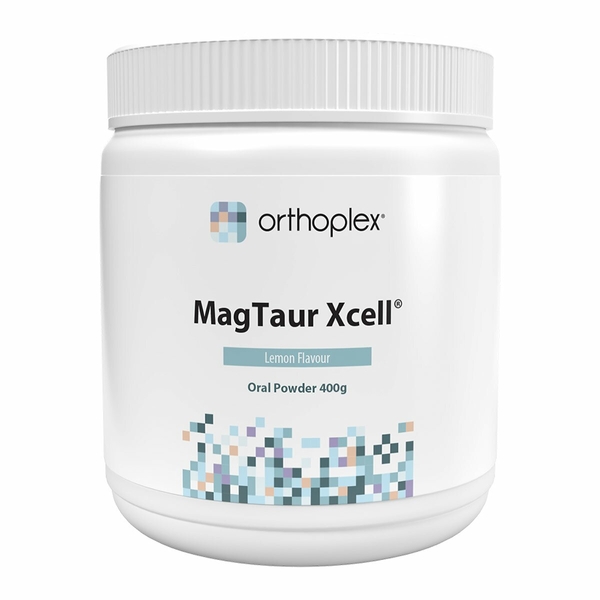
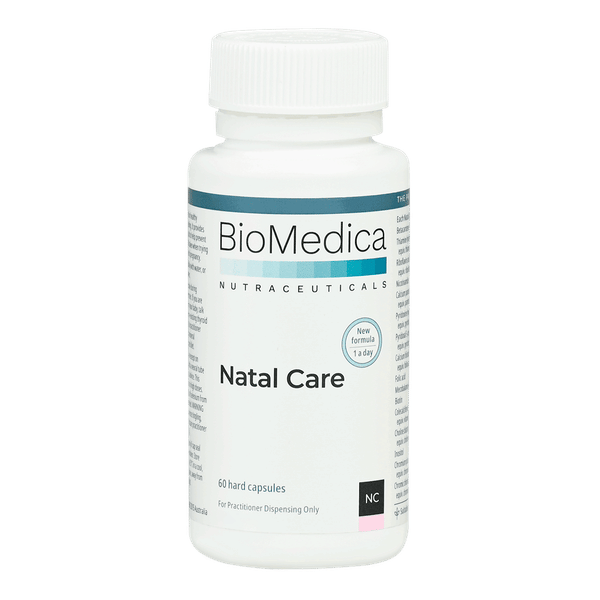
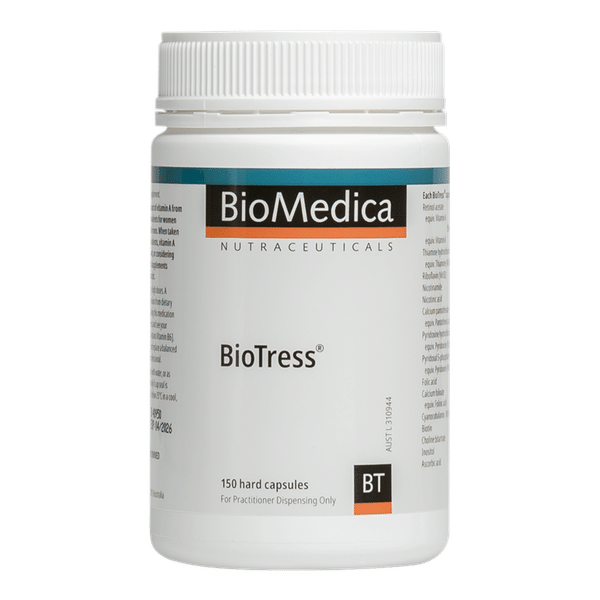
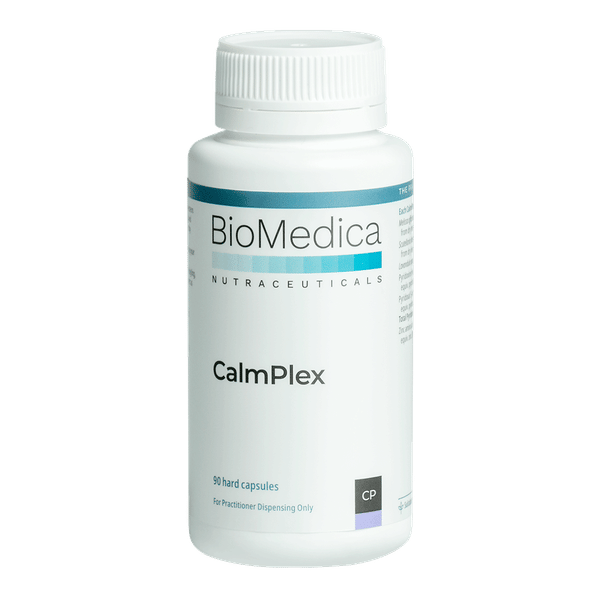
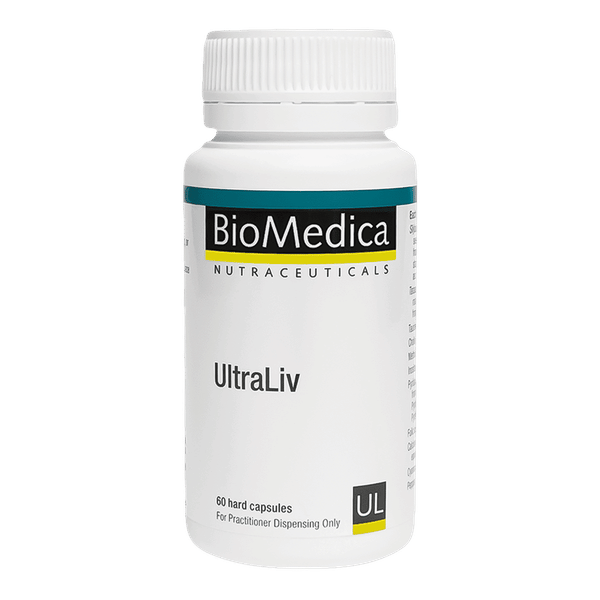
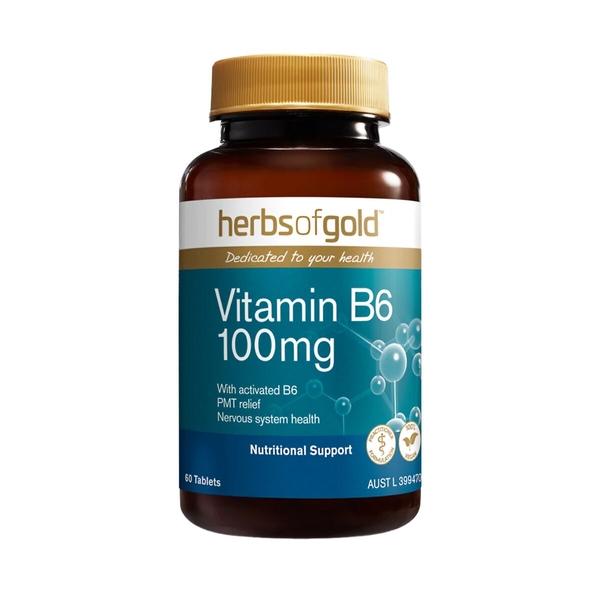
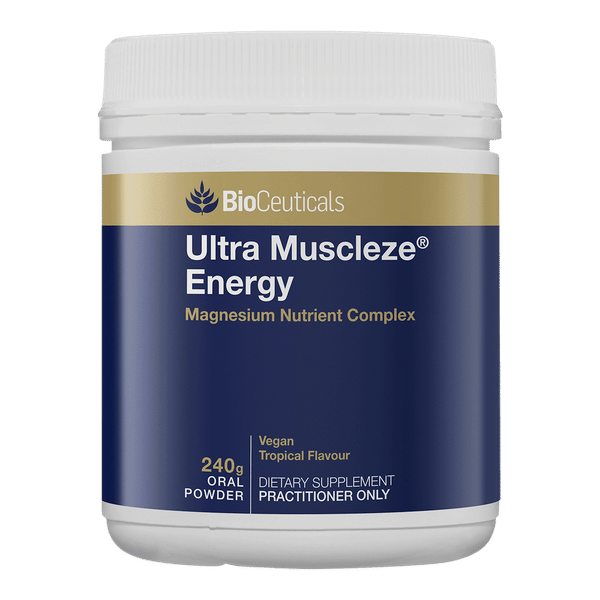


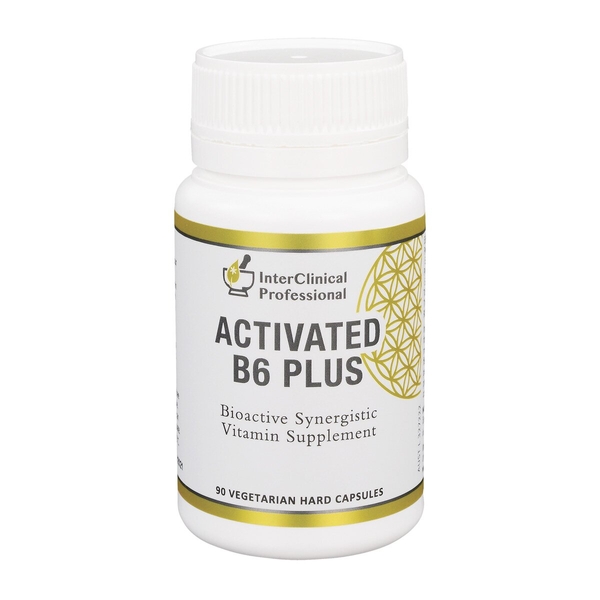

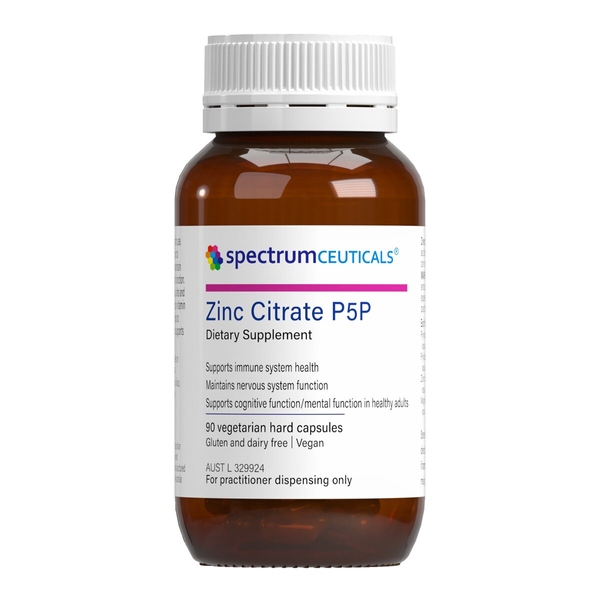
.png)

